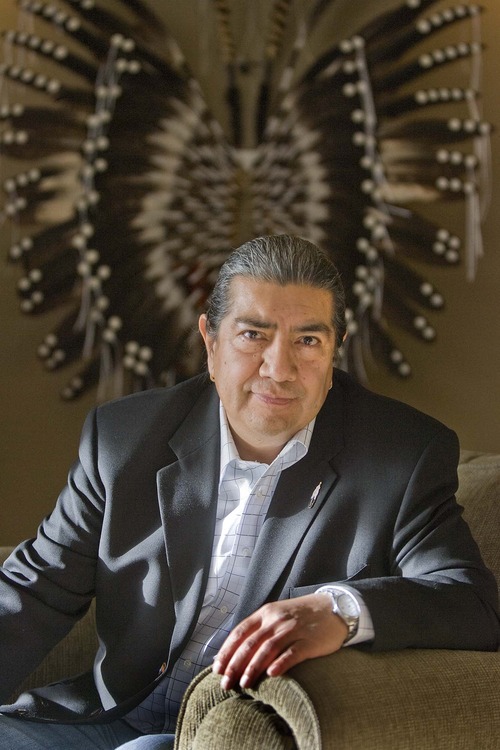This is an archived article that was published on sltrib.com in 2012, and information in the article may be outdated. It is provided only for personal research purposes and may not be reprinted.
Forrest Cuch resigned as chief executive officer of the Ute Indian Tribe's businesses after the tribe's governing body abruptly fired his partner.
Cuch said Tuesday that he resigned on Sept. 11 because the business committee did not consult him before firing Shauna Engen. Her food and beverage expertise, he felt, was vital to opening a new restaurant and revamping the tribe's grocery store and two convenience stores in the Uinta Basin.
"They hired me to manage the businesses and when things got hot and controversial, they wanted to butt in and didn't even consult me," Cuch said.
Cuch was the director of the state Office of Indian Affairs for more than 13 years before he was fired in February 2011 by Gov. Gary Herbert.
Six months later, he took over as CEO of Ute Tribal Enterprises, which includes the nonpetroleum businesses of the Uintah and Ouray Reservation based at Fort Duchesne. Cuch is a member of the 3,157-member tribe, and previously was its education director for 15 years.
The most profitable of Ute Enterprises' businesses hauls wastewater from oil wells, but it also has a grocery store and a bowling alley with the new restaurant in Fort Duchesne, convenience stores in Myton and Fort Duchesne, an information technology company in Salt Lake City and an accounting business.
Longtime business committee member Stewart Pike said the committee received many complaints from tribal members, employees and customers about Engen, who is not a member of the tribe.
"So after two or three months of listening to that, we decided to thank her for her services and that was it," he said.
The committee didn't see the need to discuss the matter with Cuch, he said. "He was not a focus of our concern," Pike said. "He resigned due to his own reasons."
Business Committee Chairwoman Irene Cuch, an aunt by marriage to Forrest Cuch, was traveling Tuesday and unavailable for comment. Vice chairman Ronald Wopsock did not return phone calls to his office or home.
Cuch said he hired Engen last spring, even though he knew it wouldn't go over well among some in the community, because the committee wanted to open the restaurant in a hurry. She was the most qualified person he could bring on board quickly, Cuch said.
"I put her under the chief financial officer and declared a conflict of interest," Cuch said. "She was doing an excellent job and they simply fired her because some people were complaining."
That made his position untenable, Cuch said.
In an open letter in the tribe's Sept. 13 bulletin, Cuch said the reservation had become a "rumor mill of gigantic proportions" and that he was due more respect from the committee.
"They come from a government culture," Cuch said Tuesday. "They have no understanding of the business world whatsoever. It's sad."
One of the innovations Cuch and Engen brought to the grocery store, he said, was an emphasis on healthy foods, such as grass-fed beef and organic fruits and vegetables. The nonprofit they had previously started together in Salt Lake City, Rising American Indian Nations (RAIN Utah), provided health education to the tribe, he said.
Cuch is building a home near Roosevelt, and intends to stay in the Uintah Basin and perhaps seek a seat on the business committee in next April's election.
About the Utes
The Uintah and Ouray reservation is about 150 miles east of Salt Lake City. It is the second largest American Indian reservation in the U.S., covering more than 4.5 million acres.
The Utes have a tribal membership of 3,157; more than half of those members live on the reservation.
Members operate their own tribal government and oversee approximately 1.3 million acres of trust land. The Utes also operate several businesses, including an energy company called Ute Energy. Cattle raising and mining of oil and natural gas is big business on the reservation.
Source: The Ute Indian Tribe



